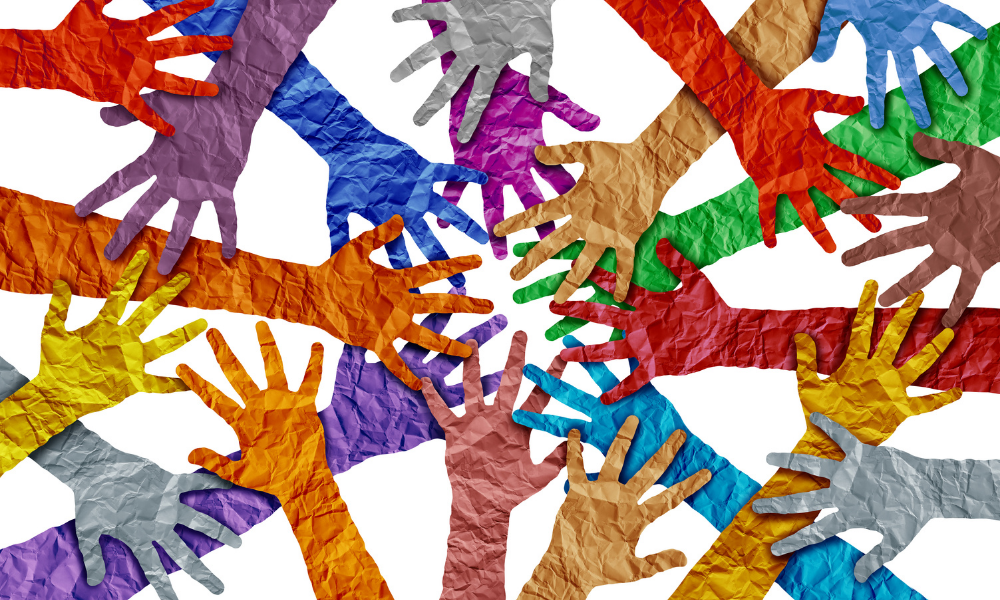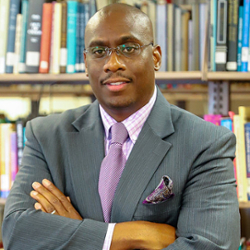Continuing Our Education: From White Fragility to White Allyship and Beyond
School of Professional & Continuing Education (SPCE)
The School of Professional & Continuing Education leaders, Dean Melissa M. Lubin, Kai Degner, Carol Fleming, and Rodney Wolfenbarger, took a 4-week online course with Dr. William T. Lewis. The purpose of the course was for the cohort of students (25) to gain a deeper level of awareness and understanding of how White racial identity has been privileged above other racial identities in the United States of America. In addition, the course was designed to assist participants in their journey from understanding racism from an intellectual point of view to internalizing how they can affect change. Following are some of the thoughts and feedback from the course. PCE had the most students in the course from one location.
“Sometimes people just need their own space to talk about things they don’t understand without guilt or shame.” Dr. William T. Lewis
 Dr. William T. Lewis served as the facilitator of the workshop. He is a nationally recognized diversity and inclusion thought leader, an entrepreneur, and is an advisor/consultant to university presidents. As a former Chief Diversity Officer, Dr. Lewis has led diversity and inclusion initiatives at three higher education institutions: Indiana University, Bridgewater State University, and Virginia Tech.
Dr. William T. Lewis served as the facilitator of the workshop. He is a nationally recognized diversity and inclusion thought leader, an entrepreneur, and is an advisor/consultant to university presidents. As a former Chief Diversity Officer, Dr. Lewis has led diversity and inclusion initiatives at three higher education institutions: Indiana University, Bridgewater State University, and Virginia Tech.
This course was designed by Dr. Lewis to be a journey of self-discovery and action. At the end of the sessions, each participant would have: Developed a deeper awareness of their own White racial identity development; Identified their unconscious bias behaviors; and, Developed an individual and group action plan. The journey for the students would take them from a micro exploration, to macro, and back to micro again. But where did the idea to create such a journey originate?
Just one year ago on May 25, 2021, George Floyd was murdered in the streets of Minnesota spurring many conversations nationwide. Diverse groups of people gathered on Zoom calls to the streets across America, and yes, even on higher education campuses, to discuss how they felt and the impact of the tragedy. Dr. Lewis quickly opened his podcast, Beyond Color Blind, to have open conversation and dialog with several colleagues. This conversation led him to the idea of creating a safe space for White people to ask a Black man a question that they otherwise would not ask. It would require him to not only provide an understanding of anti-racism to participants, but to also be transparent, emotionally secure, and mature in his responses.
The conversations were transformative for him as well as all those that actively engaged. In Lewis’ experience, typically in mixed company White people will observe, but not participate. They will listen and not offer perspective or opinion. This often creates an environment of mistrust with Black colleagues when there is no conversation. However, in these sessions, participants shared with a deep level of vulnerability and showed that they were engaged with the discussion, content in the session chat, and in the self-reflection written responses.
Dr. Lewis stated “The conversations in the live sessions were tough. There were folks that had different perspectives but we were able to work through them. It wasn’t about proving someone right, but more about being authentic and really trying to understand themselves. I wanted people to understand the developmental issues around race in America. I feel that everybody left with a greater level of understanding and courage to engage in conversations. They should be less likely to sit and observe but more likely to actively participate and contribute.”
“We all have cultural baggage.”
Did the course change any of your perspectives about what is happening in society here at JMU? 
Kai Degner, Director Professional Development, stated “There was a linear progression of self-identity around posture as an individual in this space from first being colorblind as a well-intended neutrality, where he then breaks that neutrality down as enabling the status quo which is harmful.”
“It was a great group of people that participated in the sessions. We were given a lot of good resources and books to read. I highly recommend watching 'Amend: The Fight for America' on Netflix!” said Carol Fleming, Assistant Dean, Outreach & Engagement. “The discussion on critical race theory discussion was really intriguing especially about how they have been implemented into curriculums at universities and how few actually initiated them.”
One of the biggest takeaways and points of discussion was the difference of white privilege and economic privilege. “Teasing apart the difference between the two as it [economic privilege] may accompany someone who is white, but it may also accompany someone who is black. That does not diminish what the impact of white privilege has done,” stated Melissa Lubin, Chief Economic Engagement Officer and Dean of the School of Professional & Continuing Education. “To me why this was important to see and talk about it and understand it more because it is a gateway into having conversations with people.”
Rodney Wolfenbarger, Director of the JMU Lifelong Learning Institute, said that the reflection activities and group discussions were helpful. "We had to write and post responses that you knew others were going to read. That requires committing to language that might be uncertain. You had to give yourself permission to be vulnerable, knowing that you might change your perspective tomorrow. But it was important to be honest and commit so that the reflection served as a marker to measure growth. What do you need to iron out? Where do you need to grow to bring your whole self into alignment?"
"The most helpful exercises were those that explored cultural baggage and affinity bias. We all have these. It's important to know how they affect your decisions, interactions, and the way you present yourself. We all need to be aware of our biases and preferences because we privilege those parts of our own identity we are most familiar with, whether that's race or something else," Wolfenbarger said.
How do we bring the community along with us to this educational journey?
“Ah-ha!”
As a partner to our business community and individuals who seek professional development to advance their career, Degner feels that “We can’t try and cater to those who are not interested in learning more about diversity, equity and inclusion. Anti-racism is a skill set and you have layers of different types of training that is boiled down to knowledge and skills. We have to design our programs/corporate trainings to support the people who are interested in that work in their businesses and their careers. It is a different type of programming for PCE. My big idea is professionalizing anti-racism and making it a skills and knowledge area for growth and understanding.”
Wolfenbarger identified challenges to advancing anti-racism discussions within learning and work communities. "There will always be detractors and deniers. But imagine being a person of color and hearing that we need to go slow or have to make sure that we don't offend others. We can't avoid talking about history and race because people feel uncomfortable. And we shouldn't let our efforts be metered by the readiness of White people at the expense of continued discomfort among our black colleagues. As Rev. Dr. Martin Luther King, Jr. reminded us 'the time is always right to do what is right.’”
